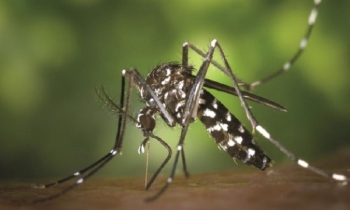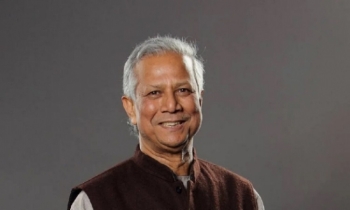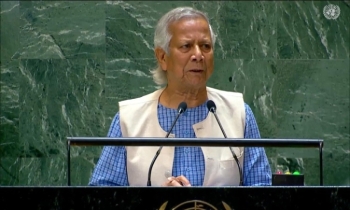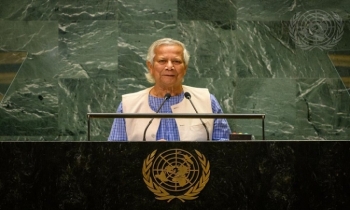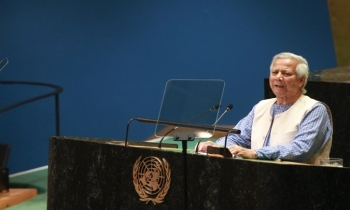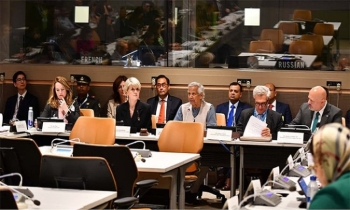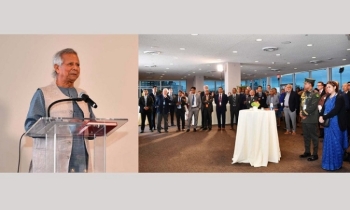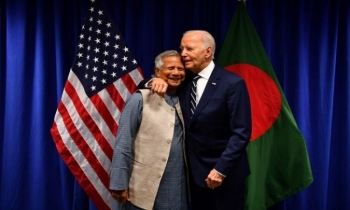Country’s annual revenue from asbestos use amounts to Tk 260cr
Hamidur Rahman || BusinessInsider
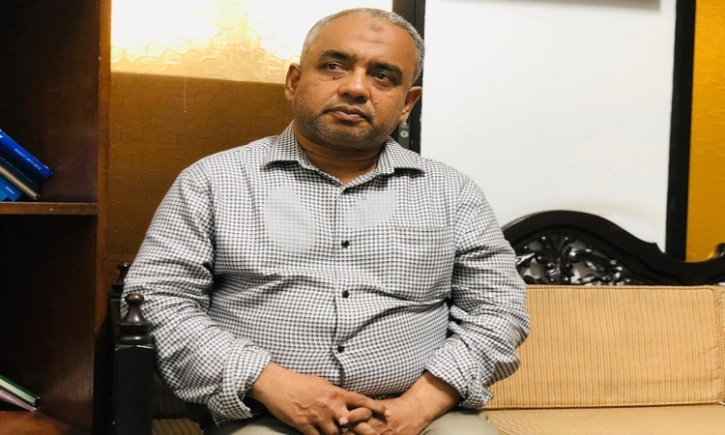
Dr. SM Morshed, vice chairperson of Bangladesh Occupational Safety, Health and Environment (OSHE) Foundation
Dr. SM Morshed, vice chairperson of Bangladesh Occupational Safety, Health and Environment (OSHE) Foundation. He has been working on the health, safety and welfare of workers in the country for around 21 years. Recently, he shared various issues and challenges in this sector during an inclusive interview with Business Insider Bangladesh.
Business Insider: I want to know about the activities of the OSHE foundation in Bangladesh. Would you share the details?
SM Morshed: OSHE Foundation began its journey in Bangladesh in 2003. We are mainly dealing with occupational health and safety. Apart from this, we work on the social security and welfare of the workers. That means our main focus is on workplace safety. We work in different sectors, both– formal and informal sector.
For example, we work with the garment sector. In the same way, we also provide training to workers in informal sectors like construction work. Around 85 percent of the country's total workforce is involved in the informal sector. The country’s existing labor laws do not cover the laborers’ rights. Even they are deprived of their fundamental rights. The workers do not have a fixed wage structure; they work on daily basis. And thus, we conduct our training programmes and campaign to ensure their benefits.
We also deal with health risks. The workers are infected by some diseases which is called occupational disease. It is compensable as per labor law. If the workers are physically injured while working, the employer will compensate them. There are many aspects - if there are many women workers, separate toilets should be made, if there are many workers, day care centers should be made.
Again there are separate laws for tea workers. Many workers bring children to the tea garden, a place to keep the children and nutritious food should also be provided. In other words, we follow whether the things mentioned in the labor regulations are being implemented.
Business Insider: Who are your local and foreign partners?
SM Morshed: Some foreign organisations provide donations to the OSHI Foundation. Currently, The European Union is giving us funds, Germany's GIZ is funding us for excellent monitoring, there is an organisation called Korea Best AMRC, they are also funding us for research base work, there is an organisation called DWUHN, they are extending funds for our social security sector. We also have partnerships with many other smaller foreign organisations.
Business Insider: You say people are dying of cancer from using asbestos. But since 1969, cement sheets have been produced in the country. There have been no reports of asbestos-related cancer and no deaths in the country in such a long time. In this context, the matter seems contradictory. What do you think?
SM Morshed: Our owners have set up houses using the asbestos sheets in the tea garden as asbestos sheets are long-lasting and do not burn in fire. But there are harmful ingredients here. It is not absorbed by the body immediately. After 10 to 15 years the effect is taking place in their body. If it is like dengue, you go to the hospital immediately. That’s why we call it the silent killer. It does not affect immediately when it enters the body. After a long time, this disease has spread in the human body. After such a long time when cancer is diagnosed in the body, there is no way to understand when or why it happened. Even if you die from asbestos, you don't know it. Because you did not diagnose it. How death occurs is not being tested or diagnosed in our country. Because of this specific cause of death from cancer is not available.
Business Insider: Even if it is not assumed that the cause of death of workers in our country is not being diagnosed, even in India, we are not getting reports that someone is getting cancer or dying due to asbestos. So how will you explain it?
SM Morshed: The same situation is noticed in India. The situation in India is worse than in Bangladesh. Cases of lung and breathing ailments are rampant, leading to a concerning level of inactivity among the populace. Billions of money are being invested in the healthcare sector to address these issues. A visit to certain websites reveals the startling reality of asbestos production, export, and import, shedding light on the scale of the problem. In Bangladesh alone, this sector churns out around 260 crore in revenue, indicating the significant economic stakes involved.
Business Insider: What are the health and environmental risks of using asbestos? How many people die every year? What is the number of dead? Is there any research in this regard?
SM Morshed: Asbestos is a substance harmful to human health. It is banned in 162 countries across the world. It was not banned in Bangladesh because our government earns a huge revenue. The government may know nothing about the harmful aspects of its use for health or how much it is. Due to a lack of diagnostics, accurate calculation of how many people are getting cancer or dying is not available. In a seminar a few days ago, we highlighted the annual financial losses and health risks of using the asbestos sheet. We present our research reports in meetings of many forums regularly. I am also working with the relevant ministry on the issues by assisting the government with research and information.
Business Insider: How much research on the harmful effects of Chrysotile asbestos and other decisions made in the meeting on stopping the use of all types of asbestos in Bangladesh held by the Ministry of Environment, Forest and Climate in 2021 has been implemented? Why is it still not being implemented? Will it be wrong if it is said there is no negative impact because it is not progressing?
SM Morshed: There is no negative impact, the matter is not like that. Some plans take a long time to implement. I don't know the update on the issue. It can be found as it is a matter of the concerned ministry.
Business Insider: How expensive is it? What are the alternatives to using cement sheets containing asbestos? How expensive will it be?
SM Morshed: Asbestos-containing cement sheets are not only cost-effective but also harmful. Its alternative is corrugated iron sheet but people are using it because of its longevity compared to the corrugated iron sheet. However, research should be conducted on what can be its alternative.
Business Insider: Around 1.5 crore tonnes of cement sheets are being produced in the world every year. Every year its use is increasing by around 7.5 percent. If there is a health risk, would its production increase every year?
SM Morshed: People are still not aware of the harmful aspects of using asbestos. Several campaigns, meetings, and seminars need to be held. If its harmful aspect needs to be highlighted then the people will be aware and then the use will also go down.

